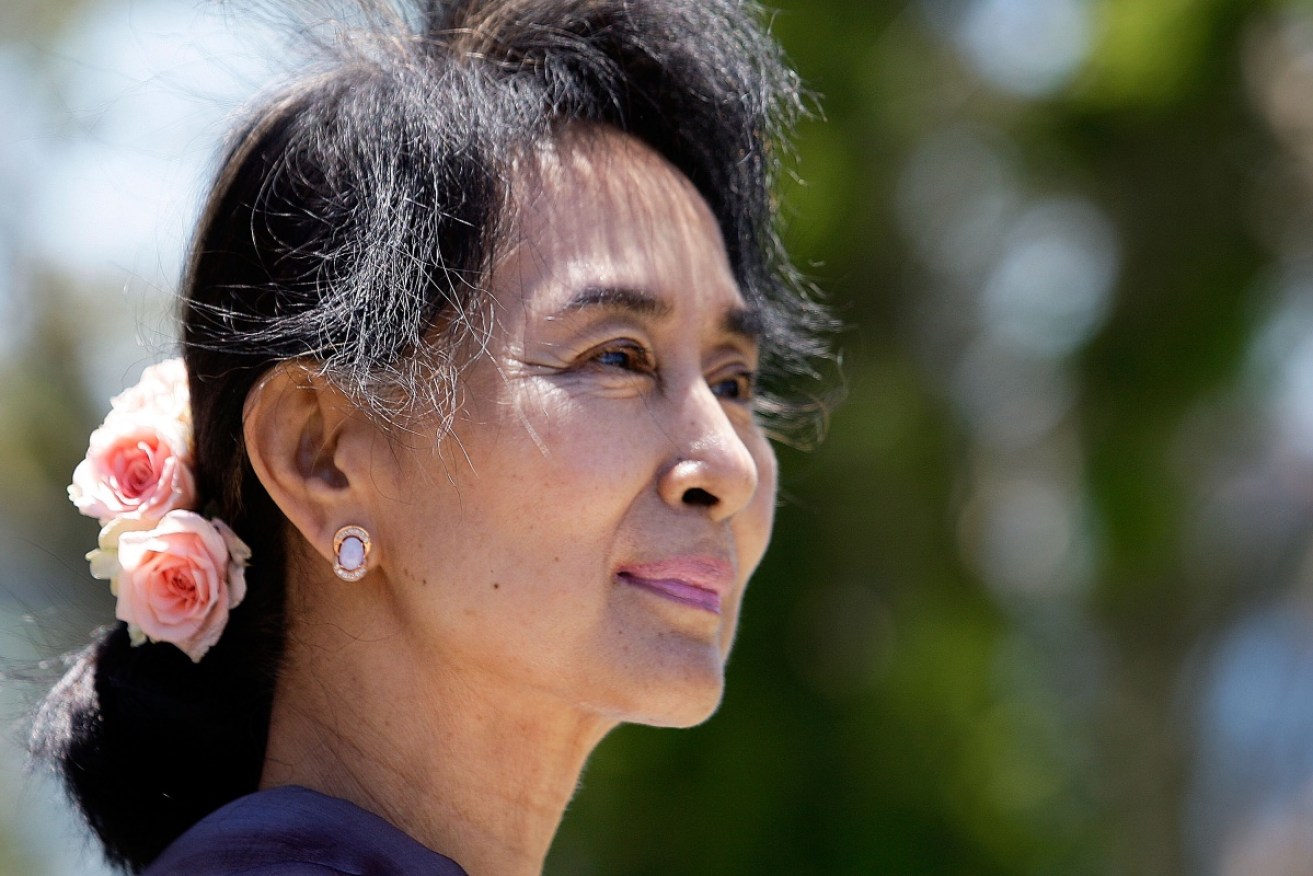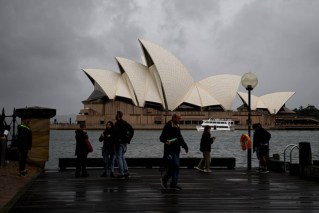US Holocaust Museum revokes award to Aung San Suu Kyi

Myanmar’s civilian leader, Daw Aung San Suu Kyi, failed to “condemn and stop the military’s brutal campaign” against the Rohingya minority. Photo: Getty
The United States Holocaust Memorial Museum has revoked a prestigious human rights award it had given to the Nobel laureate Daw Aung San Suu Kyi, now Myanmar’s civilian leader, faulting her for failing to halt or even acknowledge the ethnic cleansing of her country’s Rohingya Muslim minority.
Ms Aung San Suu Kyi, who endured 15 years of house arrest for taking on the military dictatorship in Myanmar, was only the second person to receive the award, in 2012. It was named after Elie Wiesel, a fellow recipient of the Nobel Peace Prize and a Holocaust survivor who was one of the museum’s founders. Mr Wiesel was the first recipient.
The award, according to the museum, is given annually “to an internationally prominent individual whose actions have advanced the Museum’s vision of a world where people confront hatred, prevent genocide and promote human dignity”.

As many as 700,000 Rohingya refugees have crossed into Bangladesh, fleeing targeted violence against them in Myanmar. Photo: Adam Dean/The New York Times
But Ms Aung San Suu Kyi, the museum said, has failed to live up to that vision.
“We had hoped that you – as someone we and many others have celebrated for your commitment to human dignity and universal human rights – would have done something to condemn and stop the military’s brutal campaign and to express solidarity with the targeted Rohingya population,” the museum said in a letter to Ms Aung San Suu Kyi. The letter, which was made available to The New York Times, was dated Tuesday and addressed to Ms Aung San Suu Kyi via the Myanmar Embassy in Washington.
Instead, the letter said, she and her political party, the National League for Democracy, have refused to co-operate with United Nations investigators, blocked access to journalists and “promulgated hateful rhetoric against the Rohingya community”.
The museum’s decision is perhaps the strongest rebuke yet of Ms Aung San Suu Kyi, who has been increasingly criticised as a seemingly unrepentant apologist for Buddhist nationalism and the Myanmar military’s campaign of ethnic violence.
Beginning last August, Myanmar’s military, joined by armed Buddhist civilians, systematically killed thousands of Rohingya in the western state of Rakhine. As many as 700,000 more fled across the border to Bangladesh, where they remain. Behind them, soldiers moved in to burn their villages and bury the dead in mass graves.
The United States and other countries have accused the Myanmar authorities of ethnic cleansing, while the United Nations special envoy on human rights in Myanmar said the killings bore “the hallmarks of a genocide“.
Meanwhile, Ms Aung San Suu Kyi has refused to even utter the word Rohingya in public. In private, she becomes angry when the topic comes up, according to people who have spoken with her.
Though she has set up half a dozen commissions to look into the violence, which began after Rohingya militants attacked Myanmar security posts, the authorities continue to insist that no Rohingya civilians have been harmed.
Bill Richardson, a former governor of New Mexico and longtime friend of Ms Aung San Suu Kyi, recently quit an advisory board on the Rohingya crisis, calling it a “cheerleading squad” for the government.
In the wake of the violence, the government imposed an information blockade that continues to this day. It has barred United Nations investigators from Rakhine and has allowed only a few aid organisations to work there.
Two Reuters journalists, who were investigating the killing of 10 Rohingya men and their burial in a mass grave, were arrested and face 14 years in prison. The authorities in Myanmar accused them of possessing state secrets.
Ms Aung San Suu Kyi’s release from house arrest in 2010 and, in 2015, ascension to the role of state counsellor after her party’s landslide victory at the polls raised hopes that the country had finally emerged from decades of military dictatorship. In response, President Barack Obama eased sanctions, provided financial assistance and became the first sitting American president to visit Myanmar.
For many of her one-time admirers, her handling of the Rohingya issue has been nothing short of a betrayal.

The Myanmar military’s campaign to methodically burn Rohingya villages, seen here from Bangladesh in September, has prompted accusations of ethnic cleansing. Photo: Associated Press
In an open letter last year, Archbishop Desmond Tutu, a fellow Nobel laureate, described her as “a dearly beloved younger sister” whose photograph he had long kept on his desk.
“My dear sister: If the political price of your ascension to the highest office in Myanmar is your silence, the price is surely too steep,” he wrote.
Though she is Myanmar’s civilian leader, Ms Aung San Suu Kyi’s power is limited in the face of the military’s continued popularity and domination of the country’s economy and its important institutions. The post that she holds, state counsellor, was created after her party’s 2015 election victory, as she is constitutionally barred from becoming president.
In its letter, the Holocaust Museum acknowledged “the difficult situation you must face in confronting decades of military misrule”.
But the museum said the scale of the human suffering inflicted on the Rohingya demands action. It called on her to co-operate with United Nations investigators to establish details about the violence and to help bring those responsible to justice. It also urged her to amend a 1982 law that stripped the Rohingya, who have lived in the western region of Myanmar near Bangladesh for centuries, of their citizenship.
The letter closes with a quote from Mr Wiesel:
“Neutrality helps the oppressor, never the victim. Silence encourages the tormentor, never the tormented.”








